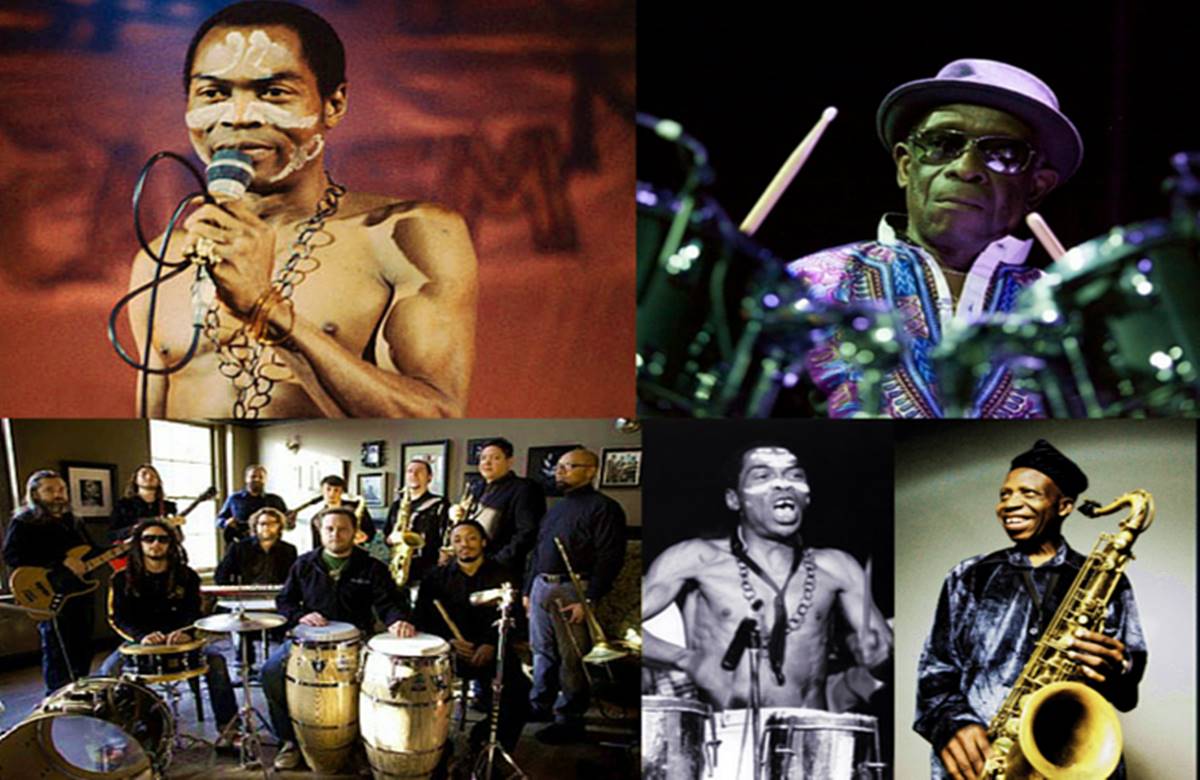
Afrobeats, a dynamic and rapidly growing genre, has become more than just a source of entertainment. It has evolved into a powerful tool for social change across Africa, addressing issues like corruption, political oppression, inequality, and youth empowerment. As the genre gains international recognition, its influence on societal transformation in Africa continues to grow. In this article, we explore how Afrobeats is tackling social issues and empowering communities across the continent.
What is Afrobeats?
Afrobeats is a fusion of traditional African sounds, jazz, funk, highlife, and contemporary genres like hip hop and dancehall. It originated in Nigeria in the late 20th century, heavily influenced by Afrobeat pioneer Fela Kuti, who used music as a platform for activism. Today, Afrobeats artists continue in that tradition, using their music to raise awareness and spark conversations about important social issues.
The Rise of Afrobeats as a Social Movement
The global rise of Afrobeats has given African artists a platform to voice concerns about their communities. As streaming services, social media, and global tours have made the genre more accessible, these artists are now able to connect with a wider audience and shed light on issues often ignored by the mainstream media.
Afrobeats is not only creating an international fanbase but also highlighting challenges like corruption, police brutality, economic disparity, and gender inequality. Artists are using their music to amplify the voices of the marginalized and call for change, making Afrobeats a tool for social activism.
Afrobeats and Political Commentary
One of the most significant ways Afrobeats is addressing social issues is through political commentary. Many artists have used their music to criticize governments, corruption, and human rights abuses. This is reminiscent of Fela Kuti, who pioneered the use of Afrobeat as a platform to speak out against Nigeria’s military regime in the 1970s.
For instance, Nigerian artist Falz released a song titled This is Nigeria in 2018, inspired by Childish Gambino’s This is America. The song highlights pressing issues like corruption, police brutality, and mismanagement of public funds. It quickly went viral and became a rallying cry for Nigerian youth, pushing the conversation about these issues to the forefront.
RELATED: SA Hip Hop’s Digital Revolution: The Impact of Social Media and Streaming
Similarly, Burna Boy’s Monsters You Made tackles themes of colonialism, systemic oppression, and political failures across Africa. By blending infectious rhythms with hard-hitting lyrics, Afrobeats artists continue to be a voice for the voiceless, sparking conversations that can drive real societal change.
Youth Empowerment through Afrobeats
The majority of Africa’s population is under the age of 35, making youth empowerment one of the continent’s most pressing issues. Afrobeats plays a significant role in empowering young Africans by giving them a platform to express themselves and challenge societal norms.
Artists like Wizkid, Davido, and Tiwa Savage not only create music that resonates with the younger generation but also use their influence to encourage young people to participate in politics and advocacy. During the #EndSARS protests in Nigeria, Afrobeats artists were at the forefront, lending their voices and platforms to demand an end to police brutality. Songs like Burna Boy’s 20 10 20 and Davido’s support for protestors exemplify the role music plays in empowering youth-led movements.
Beyond political engagement, Afrobeats also encourages young people to pursue careers in creative industries, which are often overlooked in traditional African societies. The rise of Afrobeats has led to the growth of various supporting sectors, including fashion, dance, and videography, giving young Africans new opportunities for economic advancement.
Gender Equality and Women’s Rights in Afrobeats
Gender inequality remains a significant issue across Africa, but Afrobeats is helping to challenge traditional gender roles and amplify the voices of African women. Female artists like Tiwa Savage, Yemi Alade, and Tems are using their platforms to advocate for women’s rights and gender equality, both in the music industry and in society.
Tiwa Savage’s song Koroba sheds light on the struggles women face, including societal expectations and the double standards they endure. Through her music, she encourages women to embrace their independence and challenge oppressive norms. Similarly, Yemi Alade’s global hit Johnny is a playful yet critical take on gender relations and infidelity, subtly addressing deeper issues of trust and respect in relationships.
These female Afrobeats artists are breaking down barriers, showing that women can lead not only in music but also in the broader fight for gender equality. Their success and influence empower young girls to pursue their dreams and challenge patriarchal structures.
Addressing Economic Inequality through Afrobeats
Economic inequality is a pressing issue in Africa, with millions living in poverty while a small percentage enjoys extreme wealth. Afrobeats artists often come from humble beginnings, and their success stories inspire hope for many struggling Africans.
Through their music, Afrobeats artists address the wealth gap and the struggles of daily life. Olamide’s Poverty Die and Zlatan’s Bolanle both touch on themes of economic hardship and the desire for financial security. These songs resonate with millions of listeners who face similar struggles, making Afrobeats a form of escapism while also raising awareness about economic disparities.
Moreover, successful artists often invest back into their communities, helping to create jobs and provide financial support to those in need. Davido’s philanthropic efforts, including his donation of N250 million to orphanages across Nigeria, show how Afrobeats artists are using their platforms to address economic inequality.
Afrobeats and Cultural Identity
Afrobeats has become a cultural phenomenon, not just in Africa but worldwide. It serves as a celebration of African identity, heritage, and pride. By embracing African languages, clothing, and traditions, Afrobeats artists are challenging Western cultural dominance and promoting African culture on a global scale.
Artists like Burna Boy, who refers to himself as the “African Giant,” have made it their mission to put Africa on the map. His music blends Afrobeat, reggae, and dancehall with socially conscious lyrics, making him a voice for African pride and resilience.
Afrobeats is also playing a key role in the African diaspora, connecting African descendants around the world with their roots. Through Afrobeats, people of African heritage are reconnecting with their culture, history, and identity, sparking a sense of pride and unity.
The Role of Afrobeats in Social Activism
Afrobeats’ ability to inspire and mobilize people makes it a powerful tool for social activism. Its infectious beats and relatable lyrics give the genre mass appeal, allowing it to cut across class, ethnicity, and geography. As a result, it has been used in protests and campaigns across the continent.
RELATED: Fashion and Amapiano: How the Genre is Influencing Style
During the #EndSARS movement in Nigeria, Afrobeats played a central role. Artists used their music and social media platforms to draw attention to police brutality and rally support for the cause. Songs like Burna Boy’s 20 10 20, which memorializes the Lekki Toll Gate massacre, served as anthems for the movement and kept the momentum going.
Similarly, in Ghana, artists like Sarkodie and Shatta Wale have used their music to address corruption and advocate for better governance. Afrobeats is not just entertainment; it’s a tool for inspiring change and holding leaders accountable.
FAQs About Afrobeats and Social Change
1. How has Afrobeats influenced social change in Africa?
Afrobeats has become a platform for addressing political, economic, and social issues, empowering young people and giving a voice to the marginalized.
2. Who are the top Afrobeats artists involved in social activism?
Artists like Burna Boy, Falz, Tiwa Savage, and Davido have used their music to raise awareness about issues like police brutality, gender equality, and corruption.
3. How did the #EndSARS movement impact Afrobeats?
The #EndSARS movement in Nigeria saw many Afrobeats artists lending their voices to the fight against police brutality, with songs like Burna Boy’s 20 10 20 becoming anthems for the protests.
4. What are the common social issues addressed in Afrobeats?
Afrobeats often tackles issues like political corruption, economic inequality, police brutality, and gender inequality.
5. How does Afrobeats empower African youth?
Afrobeats empowers young Africans by giving them a platform to express their concerns, encouraging political participation, and offering opportunities in the creative industry.
6. How does Afrobeats promote African culture?
Afrobeats celebrates African identity, language, and heritage, challenging Western cultural dominance and promoting African pride on a global scale.
7. How have female Afrobeats artists contributed to gender equality?
Female artists like Tiwa Savage and Yemi Alade have used their music to challenge gender roles and advocate for women’s rights, both in the music industry and society.
8. How does Afrobeats address economic inequality?
Many Afrobeats songs highlight the struggles of poverty and economic hardship, with artists often using their wealth to give back to their communities.
9. How is Afrobeats helping to unite the African diaspora?
Afrobeats connects people of African descent worldwide, promoting a sense of cultural pride and unity among the African diaspora.
10. How has Afrobeats evolved since Fela Kuti’s Afrobeat?
While Fela Kuti’s Afrobeat was deeply political, Afrobeats has evolved
